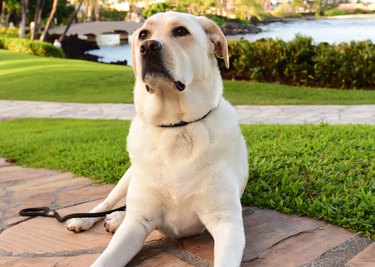
Officially, the Labrador retriever has only one breed standard stated by both the American Kennel Club and the Kennel Club in the United Kingdom. The Labrador is a medium-sized breed that's intelligent, friendly, and athletic, but it's easy to see that two distinctly different types of this breed exist. To differentiate the two types, the terms American Labrador and English Labrador emerged. While both dogs have definite differences, similarities abound.
Labrador retriever breed standard
Video of the Day
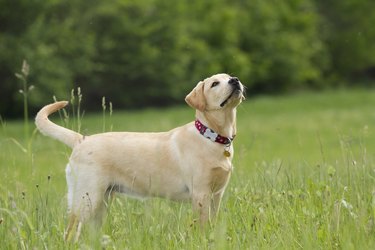
The breed standard for the Labrador retriever includes:
Video of the Day
- Weight of 55 to 80 pounds
- Three colors: black, yellow and chocolate
- Brown eyes (hazel is acceptable in chocolate Labs)
- Black or brown eye rims
- Medium snout
- Black or brown nose
- Level topline
- Straight underline with little tuck-up
- Muscular neck of medium length
- Broad chest
- Strong, straight front legs
- Straight, muscular rear legs
The Labrador retriever's tail is described as an "otter tail." It has a thick base, narrowing toward the tip, and is covered uniformly by the short, thick coat, giving it a rounded appearance.
The only way in which the two kennel clubs' breed standards for the Labrador retriever differ is in height. The UK Kennel Club standard has a smaller height range of 21.5 to 22.5 inches compared to the AKC standard of 21.5 to 24.5 inches.
English Lab vs. American Lab
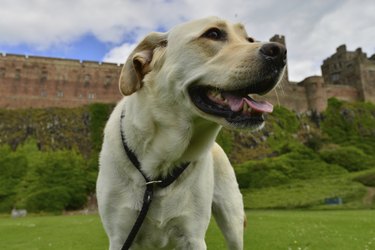
While all Labrador retrievers are held to the same breed standard, the difference in appearance occurred due to different breeding purposes for the two types. Over time, the English Labrador retriever was bred more specifically to meet the Kennel Club's standards for show dogs. As a result, the English Lab is more stocky, with a blocky head, shorter legs, and a broader chest. English Labs have shorter muzzles and shaggier coats. Overall, the English Labrador more closely conforms to the breed standard.
The first Labrador was recognized by the AKC in 1917 but didn't gain popularity until after World War II. American dogs bred for the purpose of hunting began to take on different physical characteristics. The American Lab is distinguished by their longer legs and finer bone structure. Their heads and chests are more narrow and their coats are thinner. Many American Labs may not meet all of the qualifications of the breed standard.
English vs. American Lab personality
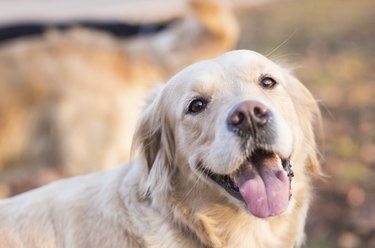
The American Lab is a working dog. He's happiest when hunting, retrieving, and hiking. He's more intense and has higher energy needs than the English Lab. The American Lab may be a good fit for an athletic pet owner who has the time and energy to provide his dog with plenty of exercise.
English Labs are much more mellow and make better pets for families or owners with more sedentary habits. They tend to be easier to train, less high-strung, and more patient. While the English Lab still needs regular, daily exercise, a walk around the block or a rousing game of fetch in the backyard will be sufficient.
Living with Labradors
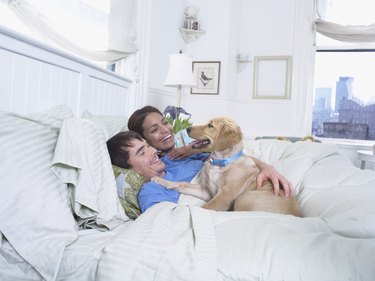
While both types have their differences, both the American and English Labradors are similar in many ways:
- Friendly and nonaggressive
- Intelligent
- Athletic
- Eager to please
- Require daily exercise
- High shedding coat that requires daily brushing
While differences in personality do exist between the two types, every dog is an individual and may vary in temperament.